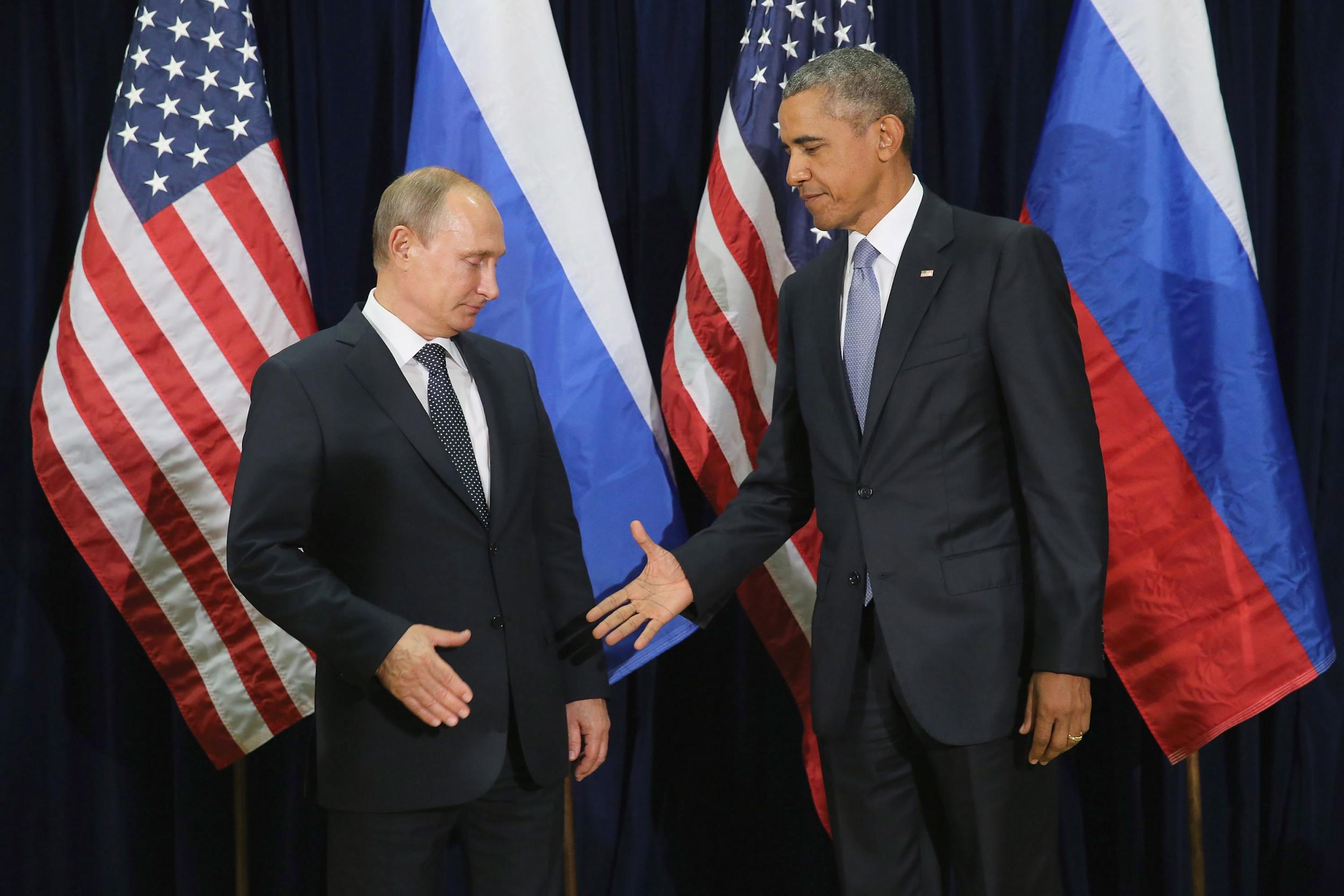Russia says US actions threaten its national security

Your support helps us to tell the story
From reproductive rights to climate change to Big Tech, The Independent is on the ground when the story is developing. Whether it's investigating the financials of Elon Musk's pro-Trump PAC or producing our latest documentary, 'The A Word', which shines a light on the American women fighting for reproductive rights, we know how important it is to parse out the facts from the messaging.
At such a critical moment in US history, we need reporters on the ground. Your donation allows us to keep sending journalists to speak to both sides of the story.
The Independent is trusted by Americans across the entire political spectrum. And unlike many other quality news outlets, we choose not to lock Americans out of our reporting and analysis with paywalls. We believe quality journalism should be available to everyone, paid for by those who can afford it.
Your support makes all the difference.The Russian Foreign Minister Sergei Lavrov has accused the US of threatening Moscow's national security.
In an interview with Russian state TV likely to worsen already poor relations with Washington, Mr Lavrov blamed the Obama administration for what he described as a sharp deterioration in US-Russia ties.
"We have witnessed a fundamental change of circumstances when it comes to the aggressive Russophobia that now lies at the heart of U.S. policy towards Russia," Mr Lavrov said. "It's not just a rhetorical Russophobia, but aggressive steps that really hurt our national interests and pose a threat to our security."
"This is a very dangerous game given that Russia, being in Syria at the invitation of the legitimate government of this country and having two bases there, has got air defence systems there to protect its assets," said Mr Lavrov.
The remarks came as tensions continued to mount between the two powers and Russia stepped up its military presence in Eastern Europe, moving nuclear capable missiles close to Poland.
"We have witnessed a fundamental change of circumstances when it comes to the aggressive Russophobia that now lies at the heart of US policy towards Russia," state news agency RIA quoted Mr Lavrov as saying.
He continued: "It's not just a rhetorical Russophobia, but aggressive steps that really hurt our national interests and pose a threat to our security."
Most recently, tensions between Russia and the US have been fuelled by the war in Syria. Russia has taken the side of Syrian President Assad and was accused of war crimes by US Secretary of state John Kerry over the bombing of civilian and humanitarian targets.
But Mr Lavrov signalled a determination to protect Russian interests in Syria and said he hoped Barack Obama would reject any proposals of carpet bombing Syrian military air fields put to him by advisors.
"[Bombing Syrian bases] is a very dangerous game given that Russia, being in Syria at the invitation of the legitimate government of this country and having two bases there, has got air defence systems there to protect its assets," Mr Lavrov said.
However, the foreign minister also said Moscow was ready to continue to the search for a long term solution to the Syria crisis despite its disagreements with the West.
Elsewhere, however, unease has been growing as nuclear-capable Iskander-M missiles were moved into the Russian enclave of Kaliningrad, which is sandwiched between Nato member states Poland and Lithuania.
Polish Defence Minister Antoni Macierewicz said the country considered the matter of "highest concern" and was monitoring the situation.
Estonia, another border neighbour of Russia, is also worried about the development. The chief of staff of the Estonian Defense Forces, Lieutenant General Riho Terras, told local broadcaster ERR that he sees the move as part of a larger Russian attempt to dominate the Baltic Sea.
"In the long term, Russia's wish is to bring the Baltic Sea and the passages leading to it more and more under its control, and to control it much like it does the Black Sea," Lt Gen Terras said.
However, Russian Defense Ministry spokesman Major General Igor Konashenkov played down the concerns.
"The Iskander ballistic missile system is mobile," he said in a statement on Saturday. "As part of the plan of combat training, missile troops are engaged in training on a year-round basis, covering great distances of the Russian territory in various ways: by air, by sea, and under their own power."
He also said Russia used the deployment to determine what range a U.S. spy satellite has.
"We exposed one Iskander before loading it on the Ambal (a cargo carrier) right under a U.S. reconnaissance satellite flying above in order to verify the parameters of that space apparatus. We did not have to wait too long (for results)," he said.
Kaliningrad is the most Western Russian territory and vital to the country’s strategic interests. It is home to the Russian Baltic Fleet, as well as land forces and an air force detachment.
Russia suspended a treaty with Washington on cleaning up weapons grade plutonium earlier this month in response to what it said were "unfriendly acts" by the United States.
Mr Lavrov said both countries had the right to pull out of the treaty in the event of "a fundamental change in circumstances".
"The treaty was concluded when relations were normal, civilised, when no one ... was trying to interfere in the (other's) internal affairs. That's the fundamental change of circumstances," said Mr Lavrov.
Join our commenting forum
Join thought-provoking conversations, follow other Independent readers and see their replies
Comments